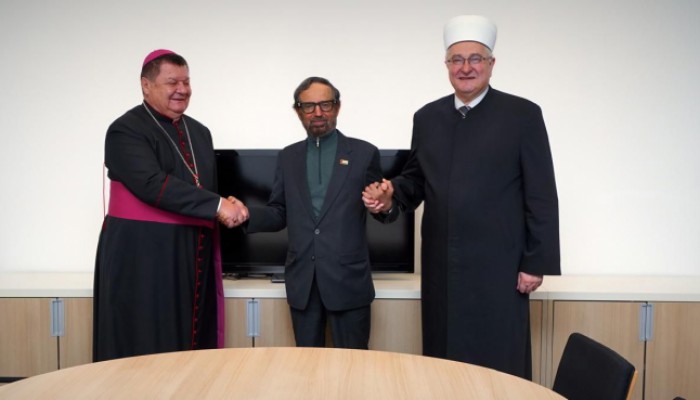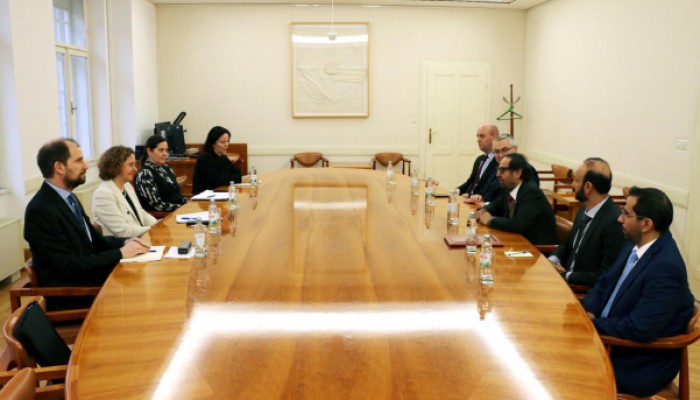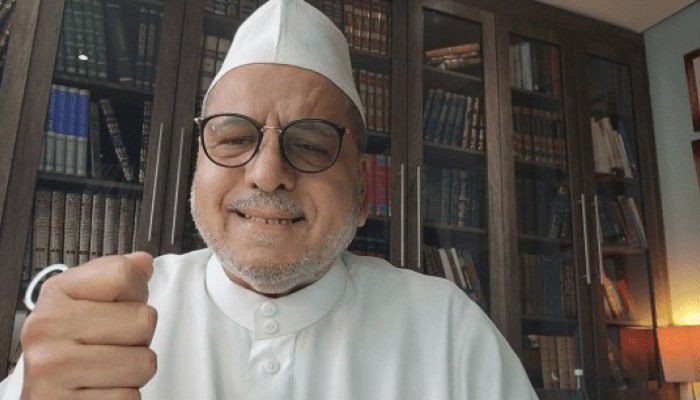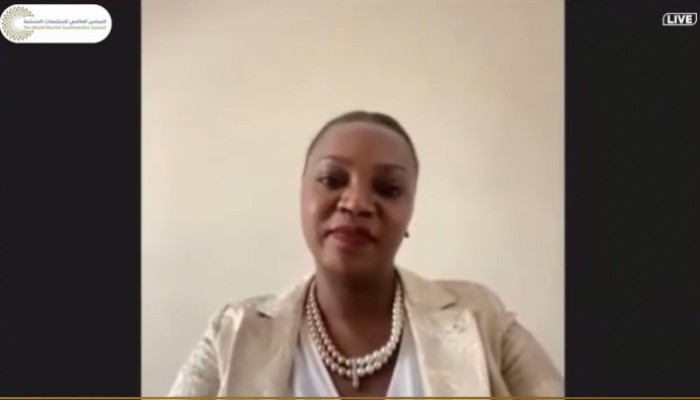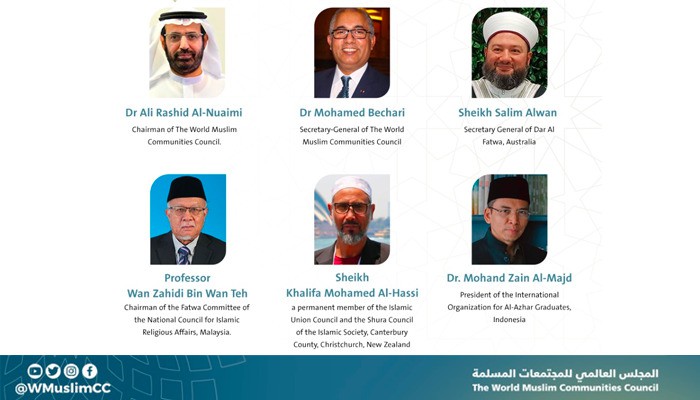
Muslims in Southeast Asia: Opportunities and Challenges",
- 2021-May-06
The importance of the conference stems from the fact that it comes in light of the escalation of the Corona pandemic in a number of Asian countries, with the participation of scholars and believers in the importance of the participation of religions in dealing with health disasters and epidemics, to creat a common ground, and joint action, in order to achieve health and psychological peace for humanity.
The conference answers many questions related to the situation and developments in the countries of Southeast Asia, in addition to the role of religious leaders in spreading Islam and its culture among their communities by upholding the values of tolerance and love, and emphasizing peaceful coexistence.
In his opening speech, His Excellency Dr. Ali Rashid Al-Nuaimi, Chairman of The World Muslim Communities Council, indicated that the Islamic world needs to learn from Southeast Asian communities. He added that the Islam nurtures and preserves human, whether he/she is belong to our religion or the homeland, as the Islam was at the forefront of the religions that established the values of diversity and coexistence.
"Joint solidarity among Muslims in these countries is necessary, to correct the image of Islam, which is based on tolerance, acceptance of others, tolerance, and rejecting violence and oppression," he added.
Dr. Salim Aloune, Secretary-General of Dar Al-Fatwa in Australia, noted the need for the Islamic nation in the current stage for unity and solidarity in spreading correct and moderate concepts of Islam, not to mention the need to pay attention among youth with great interest in education and guidance.
“Neglecting youth makes them prey to perverted ideas," referring to the role of Muslim communities in facing the Corona pandemic, stressing that adopting scientific reasons and precautionary measures does not contradict our trust in Allah.
Sheikh Khalifa Mohamed al-Hassi, a permanent member of the Islamic Union Council and the Shura Council, Islamic Society of Canterbury County in Christchurch, New Zealand, said that Muslims should unify their religious and jurisprudential reference, as the differences are mainly due to the absence of a basic reference in Arab and Islamic countries. "The original reference for the People of the Sunnis have priority," he added. On the other hand, he pointed out that the incident that New Zealand witnessed during the attack on worshipers by some extreme right-wing elements, despite its brutality, contributed to pushing many to search for Islam and read about it.
Professor Wan Zahidi Bin Wan Teh, Chairman of the Malaysian National Fatwa Council, said that Islam is a religion of tolerance, affection, mercy and justice, affirming that the Companions of Prophet have raised the values of tolerance and forgiveness. "The Messenger was keen to establish an Islamic state based on justice," he added. Wan Zahidi also indicated that the Malaysian society, despite its multiple ethnicities and languages, was able to present a unique model for coexistence.
Dr. Mohammed Zain Al-Majd, President of the International Organization for Al-Azhar Graduates, Indonesia, said that Islam came to the region of Indonesia through peaceful da'wah nt armed conquest. He pointed out that Islam was keen to emphasize the principle of coexistence, for example the most inhabitants of the island of Java are Muslims, but it have the largest Buddhist temples in the world, which indicates the tolerance of Islam and Muslims. “The Messenger and his Companions set the finest examples of justice and tolerance, especially since the values of Islam call for tolerance and peaceful coexistence."
Dr. Mohammed Bechari, Secretary General of The World Muslim Communities Council, said that the Corona pandemic had its economic, political and social repercussions, which prompts the importance of rationalizing the situation in facing the pandemic, as this is one of the origins of Sharia. "This time is important for the Islamic nation, as they needs unity and solidarity to spread the correct concepts of their religion". He indicated that digital technology is an important platform with the spread of the pandemic to deliver messages of awareness and guidance to people". He concluded by stressing that Islam urges cooperation, piety and calling to Allah with good advice, and that the Australian Dar Al-Fatwa had set a great example in dealing with circumstances by distributing food aid and providing the fatwas that people need.
It is noteworthy that the World Muslim Communities Council is an international non-governmental organization, headquartered in the UAE capital Abu Dhabi. It is considered a think tank to rationalize organizations and societies working in Muslim societies, renew their thinking and improve their performance in order to achieve one goal; The integration of Muslim societies in their countries, in a way that their members realize the perfection of citizenship and complete affiliation with the Islamic religion. The council seeks, through holding dozens of virtual conferences, seminars and activities, to localize the concepts of religious, ethnic and cultural pluralism, in a manner that preserves human dignity and respect for his beliefs, and establishes the values of moderation, dialogue, tolerance and belonging to the homelands.




